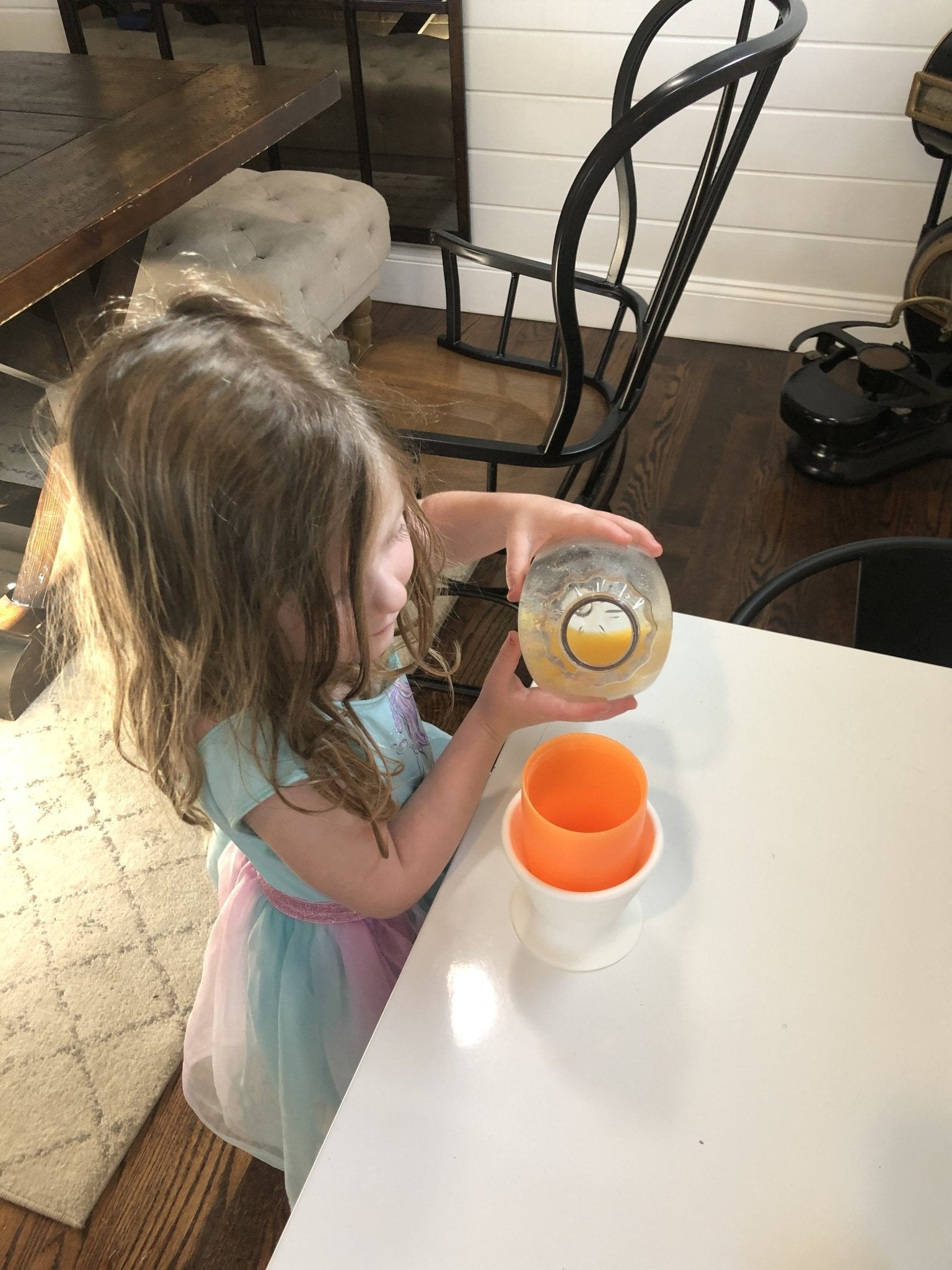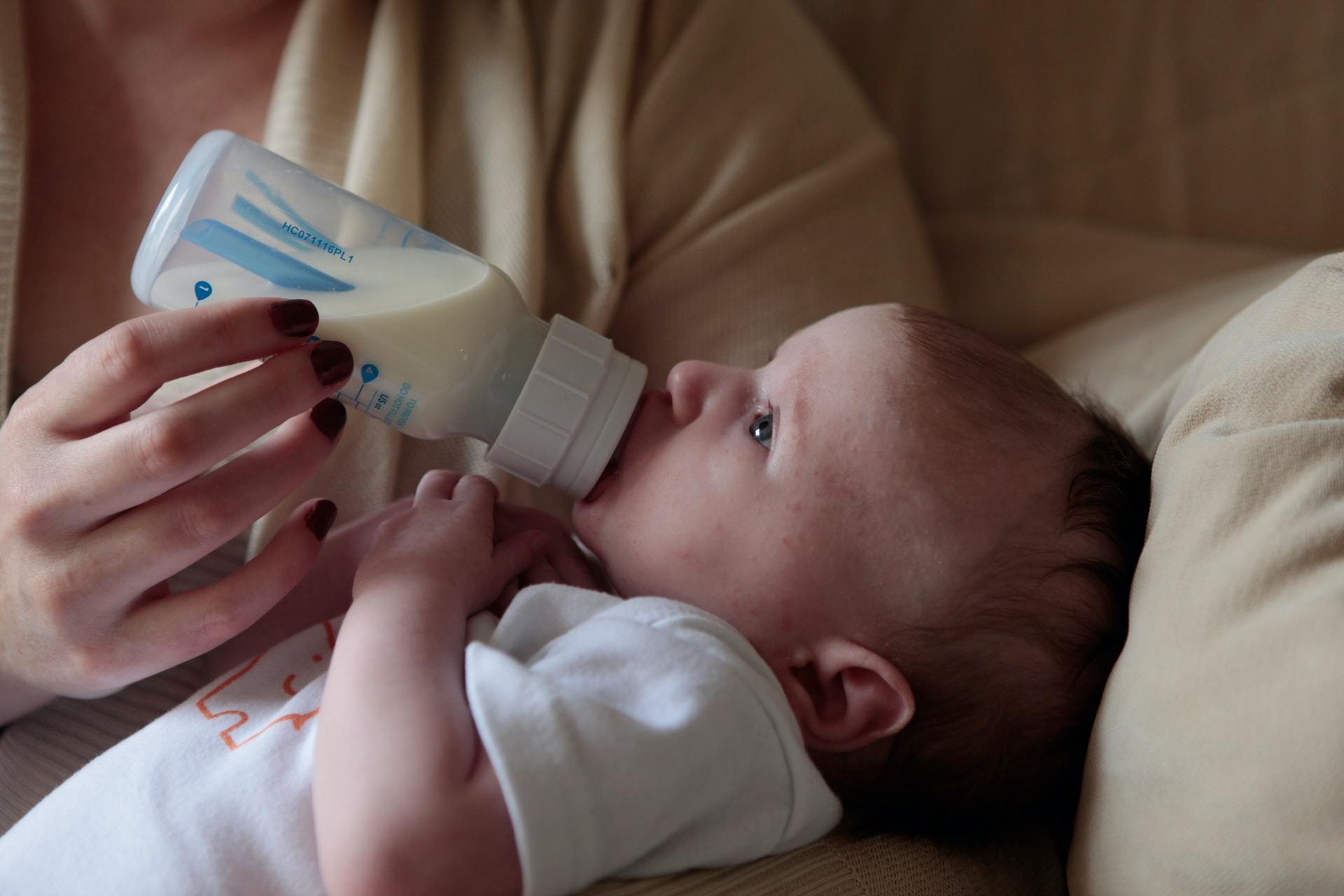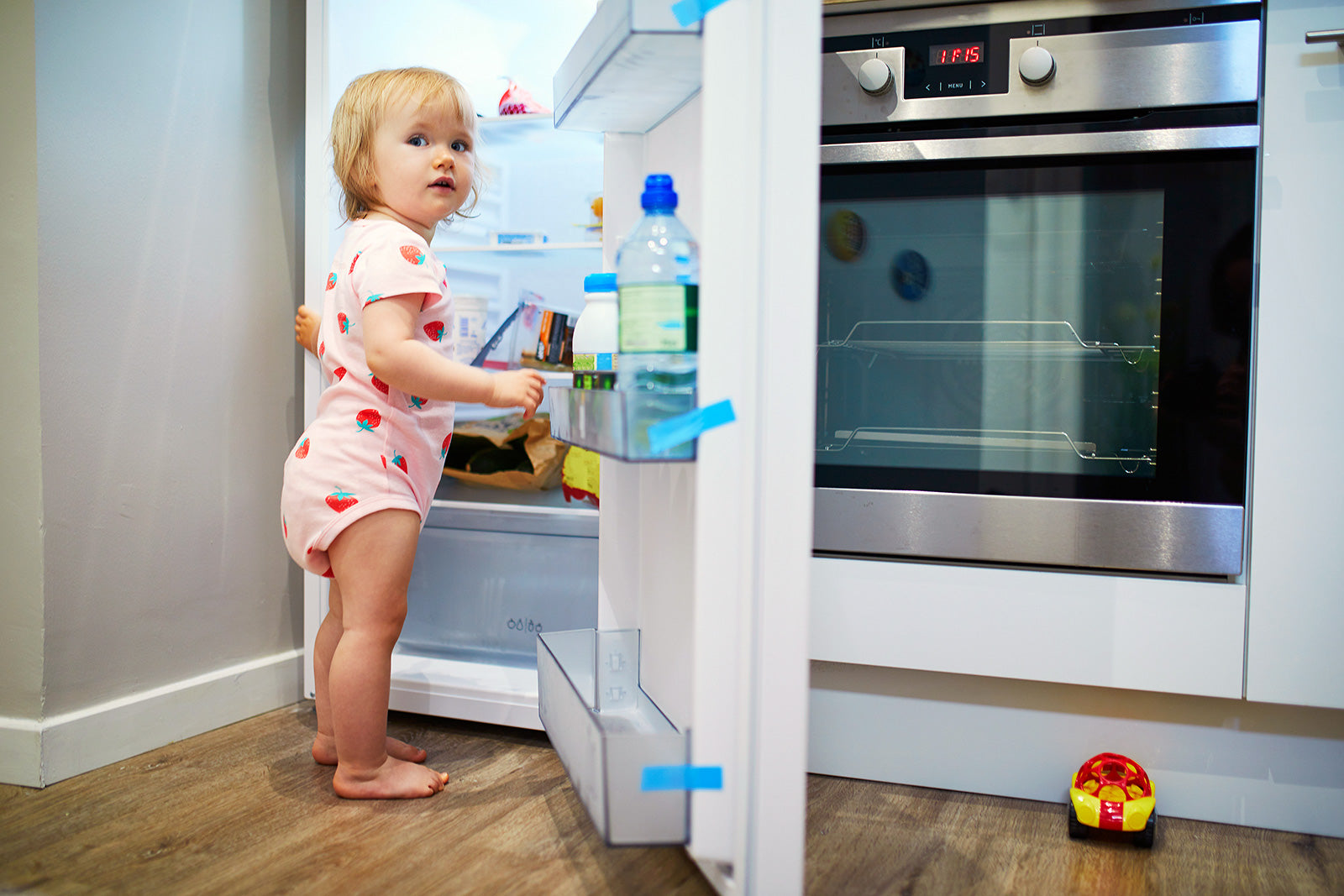How to Help Your Toddler Be More Independent

Perhaps you’re in the midst of the terrible twos or dealing on the daily with a “threenager” - a true sign that your little guy or gal wants so badly to gain some independence. Except it’s not that easy because there are rules they have to follow or things they want to do that are too challenging. The tantrum ensues and your patience grows thin. You want to foster your toddler’s independence, but how can that be done without everyone losing their cool?
Moving out of the baby stage and into toddlerhood can be a tough time. Your little one still needs you for so much, yet they want to begin to do things on their own. We also know how hard it can be watching your little baby get bigger! What your kiddo needs during this time are lots of opportunities to build independence in a safe and loving environment.
Here we'll discuss the best ways to help your toddler be more independent as well as tips for dealing with the inevitable tantrums when they arise.
Why Fostering Toddler Independence is Important
Is it easier for you to put on your child’s shoes than waiting for them to do it? Yes. Is there risk that more juice will end up on the table than in the cup if you let your toddler pour it themselves? 100%. But they won’t learn if you don’t give them opportunities. If you always take the reins on tasks your little one can handle, you’re sending them an “I can’t” message which is the opposite of what you want.
We’re not saying that sometimes (like when you should have been out the door 5 minutes ago!) you shouldn’t take over to just get it done. Instead, we want you to be mindful that you’re giving your child lots of opportunities to let your toddler do things on their own (even if it takes every fiber of your being not to step in and do it yourself.)
We know you don’t want to hear it, but one day, your son or daughter will leave the roost. And it’s your job to prepare them for that day.
Having an independent child doesn’t mean less snuggles, it just means you’re helping your child start growing into who they’re meant to be. So let’s talk about what you can do to lead the charge in your child’s growing independence while maintaining your sanity in the process.
Best Ways to Help Your Toddler Be More Independent
Building your toddler’s independence takes time and there will be hiccups along the way (including those infamous tantrums which we’ll cover.) But being proactive in creating an environment that sets your child up for success on that path is where you fit right in.
These are our top 5 ways you can foster your toddler’s independence starting right now.
1.) Give them tools that simplify a task
It won’t take you long to realize what it is that your child wants to be able to help with and do on their own. We as adults love a good product that makes life easier, so it makes sense that you would give your child this opportunity as well.
Here are just a few of our favorite tools to have around the house to help your child be able to do more on their own:
- the bökee - Originally designed to be a bottle-prep accessory for parents needing to make a bottle one-handed while holding their baby in the other (more on that here), has turned out to be a great tool for helping young children. It’s the perfect spot to hold your toddler’s sippy cup so they can do all the pouring themselves using two hands.
- Learning Tower - What kid doesn’t love to be a part of what’s going on when you’re cooking in the kitchen? Toddlers love to help pour, measure, and stir and this puts them right up with all the action.
- Crinkle Cutter - This is another great tool for the kitchen. Your child wants to help cut the fruit and use the knife, but it’s just not safe. This allows them to take part in preparing their own food.
- Cleaning Set - Broom, dustpan, mop, and even little vacuums give your child an opportunity to help with the chores. Even if they’re not really cleaning much, it sure makes them feel like a big helper (which is all that matters!)
 Toddlers can use bökee for more independence.
Toddlers can use bökee for more independence.
This is just a small list of the tools available that can encourage more independence for your child. Think outside the box and consider your unique child when determining which tools you'd like to have around your house.
2.) Get them started on a daily routine
Most people thrive off routine, and it’s amazing what having one can do for your toddler. Not only does a routine allow your child to learn what they need to accomplish on their own, but it also will make frustration and tantrums less likely.
Initially your toddler will need more guidance with his or her routine, but over time they’ll master the tasks themselves. This takes more work initially by you as the parent, but the freedom it allows you later on makes it all worth it.
One way to help your child follow their routine is by making a chart. Pictures of each task in order will show your child what they need to do. We love the ideas from The Military Wife and Mom!
3.) Encourage Independent Play
In our social-media driven world, you have access to an infinite amount of resources for activities you can set up for your child. You could easily fill an entire day, every day with what’s available. Many of these activities are incredibly valuable and certainly have a place in developing your toddler’s motor and cognitive skills. But doing these types of activities all the time inhibits your child’s imagination and creative play.
Allowing time for independent play is so important. This doesn’t mean you can’t play, too, it just means that your child gets to be in charge of what they get to play. You don't need a bunch of junky plastic toys; just provide your child with items that encourage imaginative thinking.

This also takes a lot of pressure off you as a parent to find the “perfect” activities for your child - which can be a lot of work! Just know that giving time to your child to just “be” and come up with their own ideas is great for their development.
For ideas on how to get started, check out this post from Montessori in Real Life.
4.) Avoid Stepping in at the First Sign of Frustration
When your child was a baby, parenting certainly wasn’t easy, but you always had complete control in determining what was best in any given situation. So when you start to see your child teeter between being a baby and a toddler who wants to start trying to do things on their own, it can be hard to stop yourself from stepping in.
It is inevitable that your child will get frustrated trying to do something on their own. It may be that they’re trying to do something that they likely won’t be able to, but you have to at least give them an opportunity to try. You’ll actually be amazed at what your child has the capability to do at such a young age - if you allow them time to figure it out.
If you do see your child starting to become overwhelmed that they can’t do something, you can ask if they’d like help. This still gives your child control instead of you making the decision for them.
5.) Offer Choices
One way to help your toddler become independent is by letting them choose between two options. As ridiculous as it seems to you that the color plate they get matters, they feel empowered that they get a say. That may seem like a big word for such a tiny human, but children want to be in control.
Now in a perfect world you would say, “Would you like the red or the blue plate?” and they would simply answer back with one of the choices. In a normal toddler world, they might answer back saying they want the purple plate. In this case, it’s probably pretty easy to let them have their way.
But what if you ask if they’d like a banana or an apple and they only want strawberries (which you don’t even have)? This is the perfect opportunity to show understanding instead of getting frustrated that they won’t just choose what you offered. Be empathetic through your actions and words. “I know you love strawberries, but we don’t have any. I can see that you’re frustrated about that. How about you and Mommy go to the store tomorrow and we will pick out the best strawberries they have!”
Even though this may not be the perfect fix, it’s a whole lot better than becoming irritated by their lack of willingness to take the given choice.
When Lack of Independence Leads to a Tantrum
Even the most patient and encouraging parents won’t be able to avoid toddler meltdowns. Toddlers have big emotions they’re trying to work through and that can be a lot.
When kids hear “no” that can make them angry. And the truth is that as much as you’d like to keep that word out of your vocabulary, when your child is trying to climb the dresser, you can’t just let them. And even when you do let your child do something independently, many times they’ll find that it’s actually a lot harder than they thought it would be. Not being able to put their doll’s clothes on one day might not bother them, whereas the next it will send them into a tailspin.
This is completely normal behavior. The loss of control of the situation, in this instance, has become too much for them to handle. Your child is not being naughty or defiant when you ask them to stop and they don’t. What you do in this moment will depend on the situation - your options are usually to ignore the behavior, remove them from the situation, or hold them and give them comfort until they calm down. But ultimately, it's your reaction that truly matters. As difficult as it is, you’ll want to take a deep breath and deal with it as calmly and patiently as possible. Yelling won’t make the situation any better.
When the tantrum is over you can honor their emotions and move on. Consider what triggered the outburst so you can do your best to avoid one the next time.
Tantrums are part of the toddler years. When your child wants so badly to be independent, but lacks the physical or language skills necessary, it is understandably frustrating to them and this is a developmentally appropriate response. How you respond back is what will enable you to get back to helping them learn to do more and more on their own.

Growing Your Independent Child
Raising a toddler is tough stuff, but these tiny humans also give us so much laughter and joy. It’s pretty incredible to witness the growth that occurs during these years, no doubt the reason for those strong emotions that can test our patience. What you do to foster your toddler’s independence matters. And when you witness that same toddler as an older child mastering so much on their own, you can feel proud knowing the hard work paid off.



